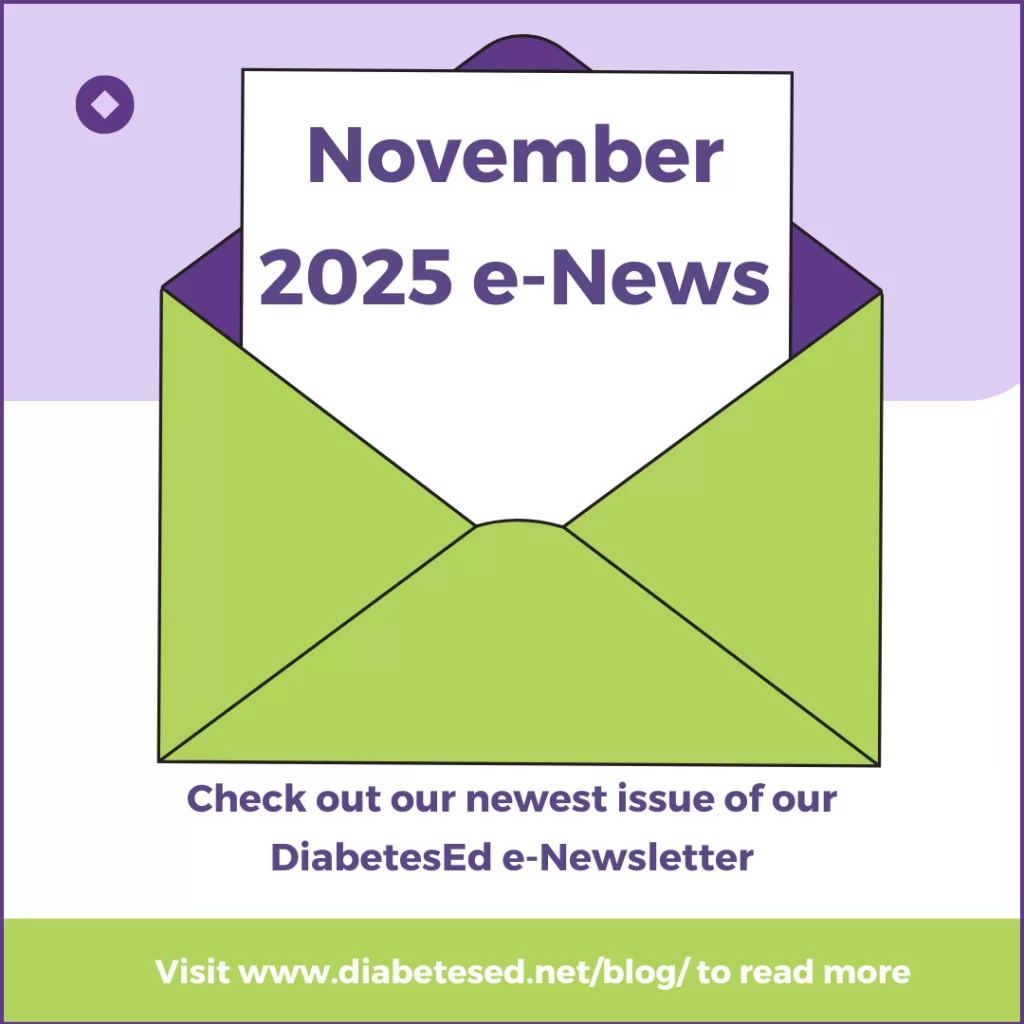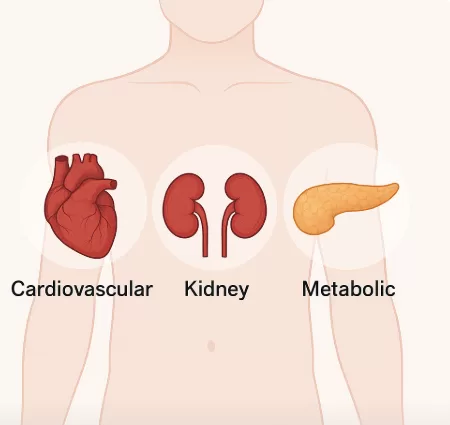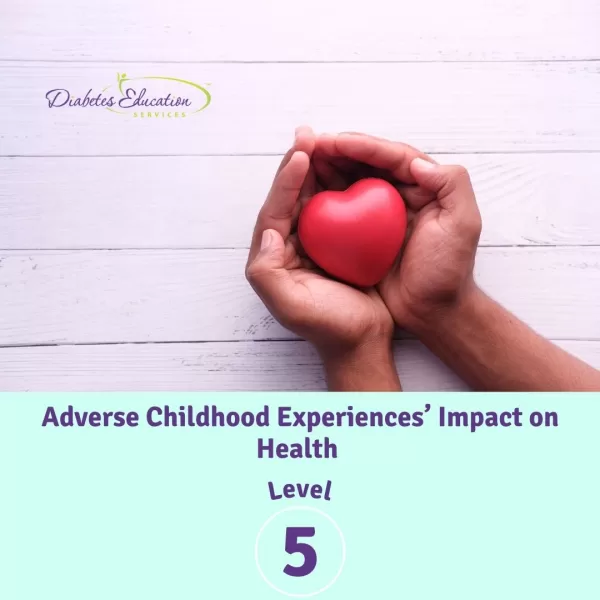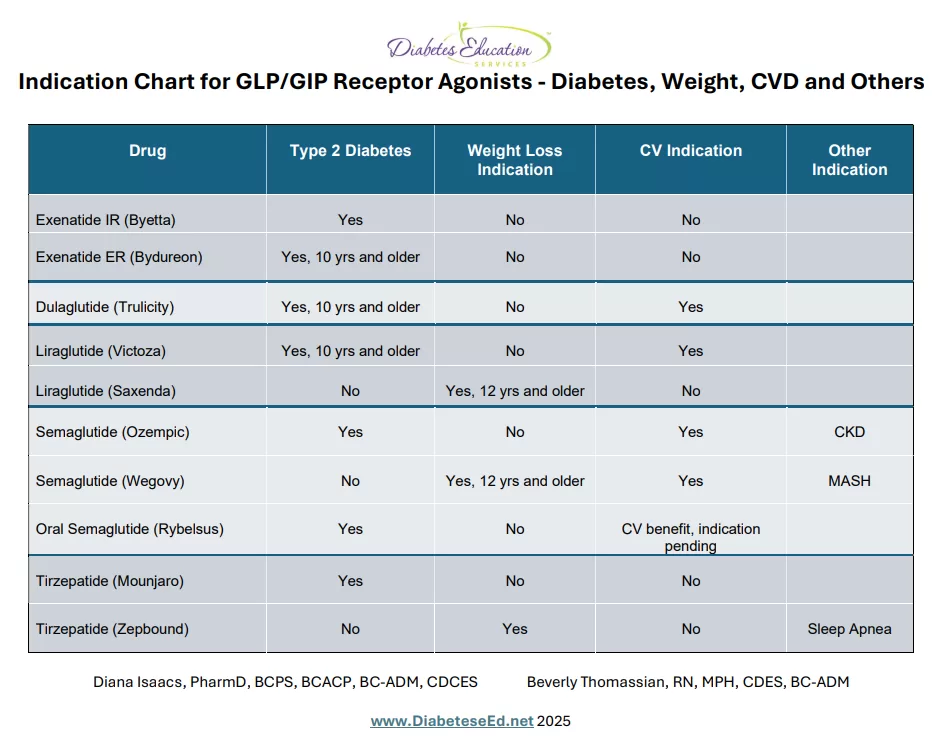
Ready to get certified?
Free CDCES Coach App

Subscribe
eNewsletter
Download
Free Med Pocket Cards
Happy World Diabetes Day!
Do you know why we celebrate World Diabetes Day on November 14th every year?
World Diabetes Day Celebrates Dr. Banting’s Birthday and the Discovery of Insulin!
Dr. Banting was born on November 14, 1891. That is why we celebrate World Diabetes Day on November 14th.
On October 25th, 1923 the Nobel prize in physiology or medicine was awarded to Frederick Grant Banting and John James Richard MacLeod “for the discovery of insulin”. The discovery was made in 1921, which makes the two-year time period between the detection and this prize one of the shortest in the history of the Nobel Prize.

During a hot summer in 1921, Dr. Banting secured space to test out his theory in the University of Toronto. Along with his colleague, Charles Best, and a bare bones lab, they conducted dozens of experiments on dogs, which ultimately led to the discovery of insulin.
Dr. Banting and Charles Best began their experiments ligating the pancreases of dogs, thinking this would prevent destruction by the digestive pancreatic juices, and then isolating the extract from the islet cells. They then processed the extract from the islet cells and injected this extract they called “insulin” into diabetic dogs. According to an audio Interview with Dr. Best, by July 1921, they had 75 positive examples of insulin lowering blood glucose levels in dogs.

In February 1922, doctor Frederick Banting and biochemist John Macleod published their paper on the successful use of a alcohol based pancreatic extract for normalizing blood glucose levels in a human patient.
Here are some photos of the first insulin bottles produced by the University of Toronto and Eli Lilly.
Soon, word of their discovery got out and the race was on to produce enough insulin to treat the flood of type 1 patients arriving in Toronto to receive this miracle injection.
First Children to Receive Insulin

The first patient to receive insulin was a ‘welfare’ case at Toronto General Hospital – no clinical trial structure to say the least. People from Canada/US flooded into Toronto to receive treatment. Banting struggled with the lack of accessibility of insulin – volume needed and issues of purification.
The earliest patients were “selected”, some youths from Canada/US, some soldiers with diabetes (probably because of Banting’s service in the First World War) and then later some select private patients. During this time they were working hard to increase the volume and continue to improve the purification process. Insulin was available for testing in US, namely through Dr. Elliot Joslin in the late summer 1922.
Dr. Banting – Fun and Interesting Facts

- Sold insulin patent for $1
- Was wounded during the First World War and received the Military Cross
- Youngest Nobel Laureate in Medicine
- First Canadian on the cover of Time Magazine
- Among the last Canadians to receive a knighthood and have the title Sir Frederick Banting
- One of only two “non-Americans” to have a Second World War Liberty Ship named after him (USS Frederick Banting)
- Has as a crater on the Moon named after him (between Apollo 15 & 17 landing sites).
Takes a Team
While Best played a critical and important role, credit must also go to Professor Macleod, from the University of Toronto, who provided the lab space, showed Dr. Banting how to operate on dogs, provided his student Best and suggested they switch from a saline to alcohol to purify the ‘extract’. Dr. Macleod also secured the support of JB Collip, the 4th man on the team and the fist person to purify insulin for human use. Best is also known for pushing Banting to return to the research during a particular dark period of failure.
Want to Learn More About the Dr. Banting and the Discovery of Insulin?
Historical Insulin Powerpoint Slides – here is a collection of some of my favorite powerpoint slides, depicting the discovery of insulin.
Visit Banting House Facebook Page
Canadian Broadcast that highlights the first patient, Ted Ryder, the first patient to receive insulin from Dr. Banting. Some great historic video footage of Dr. Banting shaking hands with the young man..
The Quest – 1958 This short film is a re-enactment of the critical year in Dr. Frederick Banting’s life when he discovered insulin for the treatment of diabetes at the University of Toronto. It depicts the odds against which he and his assistant, Charles Best, worked; the scepticism of other doctors and the final victory that gave thousands of diabetics hope for a healthier life.
The Flame – Banting House Historical Site Newsletter
November 2025 eNews

Featured Articles ___________________________ |
Upcoming Programs ___________________________ Upcoming FREE Webinars ___________________________ |
Happy November!💚
Greetings, wonderful healthcare colleagues!
Did you know that over 16% of American adults—nearly 1 in 6—are living with diabetes, according to the latest data from the CDC? When we look at the bigger picture, it becomes clear that social drivers of health play a decisive role in this growing epidemic.
Data suggests that access to knowledge, resources, and supportive environments can profoundly impact prevention, diagnosis, and daily diabetes management. By equipping individuals with knowledge about diabetes management and preventative measures, we empower them to take ownership of their health and inspire change within their communities.
To get the ball rolling, we are excited to share a list of our favorite FREE diabetes resources in English and Spanish. Please share this information with your colleagues and community members.
Have you considered the implications of Stage 4 Gestational Diabetes (GDM)? As Christine Craig highlights, after the birth of a baby, it is challenging to keep follow-up appointments and receive ongoing healthcare. Yet after delivery with GDM, the risk of future diabetes is high, and staying connected with the care team improves outcomes. Read more about this critical 4th Stage.
Our tech expert, Dr. Sarah, considers the impact of technology on diabetes distress. What effect does being “plugged” into technology have on the emotional health of the person living with diabetes?
Lastly, to help everyone feel their best this holiday season, we are sharing our popular handout, “Ten Strategies to Survive the Holidays” as well as an info sheet on reframing diabetes distress.
We hope you can join our FREE webinars celebrating National Diabetes Month. We sincerely appreciate your ongoing dedication to improving diabetes care.
With gratitude for the care you give every day!
Coach Beverly, Bryanna, Astraea & Katarina
Simplifying Insulin Delivery with CeQur Simplicity

The American Diabetes Association estimates that over 8 million people in the United States depend on insulin therapy for survival.¹ Multiple daily injections (MDI) of insulin can be challenging to manage. Diabetes care and education specialists understand that complex medication regimens often lead to difficulty achieving medication adherence and worsening glycemic control.²
CeQur Simplicity is a unique alternative to MDI therapy. It redefines insulin delivery with a wearable device that administers insulin with just a few clicks. By simplifying insulin delivery, CeQur can support successful insulin management and improve glycemic control without the hassle of multiple daily injections.
What is CeQur Simplicity?
The CeQur Simplicity patch is a wearable insulin delivery device for adults aged 21 and older, approved for individuals with type 1 or type 2 diabetes who require insulin. This thin patch can hold up to 200 units of either U-100 lispro (Humalog) or U-100 aspart (Novolog) insulin. The patch can be used for up to 4 days on any approved insulin injection site. It is usually worn on the abdomen, thigh, or upper arms, as these areas are more accessible for reaching the CeQur device.³
Pressing the buttons on the sides of the device delivers two units of insulin. Each press produces an audible click to announce delivery. Over the 4-day wear period, this wearable insulin device replaces up to twelve meal bolus injections. The ease of use and ability to dose without carrying and storing insulin or injecting it can be freeing for many people living with diabetes. Research has found that when using the CeQur patch, users were more satisfied with the device, experienced less diabetes-related burden, and missed fewer insulin boluses.
CeQur is not an automated insulin delivery system. This device operates independently and does not connect to continuous glucose monitors. The CeQur Simplicity is not approved for basal insulin and does not replace the need for basal insulin.
Who is an Ideal Candidate for CeQur Simplicity?
Diabetes healthcare professionals can help identify clients who may benefit from the CeQur Simplicity insulin patch. An ideal CeQur candidate may be those who:
- Feel overwhelmed by technology
- Have anxiety related to injections or are experiencing injection fatigue
- Want a less complicated routine
- Are frustrated with always carrying insulin pens and supplies
- Want a discreet wearable device
- Are unhappy with their current MDI therapy
The Diabetes Healthcare Perspective
The healthcare professional’s (HCP) role starts with explaining the CeQur Simplicity device and how it differs from traditional insulin pumps and insulin pens. Besides identifying those who may benefit from CeQur, the HCP also provides training and troubleshooting for CeQur. CeQur training includes demonstrating how to apply and remove the device, using the click-based bolus feature, and performing site care and rotation procedures. This hands-on education helps clients build confidence in their new insulin delivery device. HCP’s can also assist in exploring cost, insurance coverage, and manufacturer support programs.
Here are other considerations for the diabetes healthcare professional:
✅ Assess the ability to count by 2s as the device only delivers doses in increments of 2 units.
✅ Fill the CeQur device with insulin just before use and never prefilled in advance.
✅ Do not apply a CeQur insulin patch near the area where basal insulin is injected.
✅ Avoid applying the insulin patch to areas that will be irritated by clothing, accessories, or a seat belt.
✅ Use the ‘Change By’ sticker provided with each device as a reminder of when the device needs to be changed.
✅ Avoid submerging the patch more than 3 feet 3 inches (1 meter). Also, do not squeeze the dosing buttons while the patch is underwater.³
Diabetes healthcare professionals work to identify and address barriers to insulin therapy. Collaborating with clients can boost their confidence, foster effective diabetes self-management, and improve their psychological outcomes. For those who are frustrated with their current MDI therapy but are also leery of AID systems, the CeQur Simplicity insulin patch may offer fewer injections, freedom from carting around meal-time insulin, and an improved quality of life.
References
- American Diabetes Association. (2022, June 22). American Diabetes Association announces support for INSULIN act at senate press conference. [Press Release]. https://diabetes.org/newsroom/american-diabetes-association-announces-support-for-insulin-act-at-senate-press-conference
- Ab Rahman, N., Lim, M. T., Thevendran, S., Ahmad Hamdi, N., & Sivasampu, S. (2022). Medication regimen complexity and medication burden among patients with Type 2 Diabetes Mellitus: A retrospective analysis. Frontiers in Pharmacology, 13, 808190. https://www.frontiersin.org/journals/pharmacology/articles/10.3389/fphar.2022.808190/full
- CeQur Simplicity. (n.d.). Resources & support. Retrieved September 1, 2025, from https://myceqursimplicity.com/resources-support/
Updates in Lifestyle Therapy for MASLD and MASH


Metabolic Dysfunction-Associated Steatotic Liver Disease (MASLD) and metabolic dysfunction-associated steatohepatitis (MASH) are now recognized as high-risk health conditions for people living with diabetes.
Two out of three individuals with type 2 diabetes are affected by liver steatosis.¹ In May 2025, the American Diabetes Association (ADA) published a consensus report, which emphasized recommendations for early diagnosis, long-term monitoring, and highlighted lifestyle interventions as critical in preventing progression to cirrhosis.¹
In the past year, two medications have been approved for the treatment of MASH; however, lifestyle change remains at the foundation of treatment. These changes focus on improving dietary quality, increasing physical activity, promoting weight loss, and reducing sedentary behaviors.
Nutrition Therapy Approaches
Nutrition therapy, ideally guided by a registered dietitian nutritionist and reinforced by the entire diabetes care team, needs to be individualized to each person’s social, cultural, and financial needs.¹ Ivancovsky Wajcman et al. ² published a fascinating review of different country’s MASLD management guidelines summarizing recommended lifestyle interventions, their findings indicated many similarities with only a few differences.
Most groups recommended evidence-based eating patterns with the following themes:
- High in fiber and focused on whole food consumption, while reducing saturated fat, added sugars, and ultra-processed foods.¹
- Reduction of commercially produced fructose consumption was recommended as high fructose intake has been associated with greater fibrosis severity, independent of total calorie intake.
- A few guidelines specifically called out reduction/avoidance of regular soda consumption emphasizing that consuming more than four servings of regular sodas per week was associated with a 45% higher risk of developing MASLD. ³
- In contrast, coffee consumption, whether caffeinated or not, has been shown in meta-analyses to reduce MASLD risk when intake exceeds three cups per day. Guidelines suggested consumption of greater than 2-3 cups per day. (Can I get a whoot for my daily coffee habit).
- Similar to the ADA Standards of Care for diabetes management, focusing on shifting towards water consumption and reducing the consumption of sugar-sweetened beverages has shown improved outcomes.
Other Recommended Eating Patterns & Physical Activity
The Mediterranean diet eating pattern is recommended in the MASLD/MASH ADA consensus report as well as the EASL–EASD–EASO Clinical Practice Guidelines ¹,²,³ due to its relationship with improving diet quality and evidence of hepatic and cardiovascular health benefits, even without weight loss.
Other dietary patterns, such as the low-fat, low-carbohydrate, Dietary Approaches to Stop Hypertension, high protein, meal replacement, and intermittent fasting, have also been shown to be comparable strategies to improve steatosis due to weight loss.¹
In people with overweight and obesity, the magnitude of weight loss has been associated with improving glycemic management, insulin sensitivity, as well as histological improvements in MASH.¹
Weight reduction over 5% has been associated with reduced steatosis, and greater weight loss of 7-10% has been shown to reverse steatohepatitis and liver fibrosis.¹,²,³ However, it is recognized that achieving long-term weight reduction may be challenging.³
Avoidance of alcohol is recommended for individuals with moderate fibrosis, as even modest use may aggravate injury.
Physical Activity, Stress Reduction & Sleep
Physical activity, including aerobic and resistance training, has independent effects beyond weight loss: decreasing intrahepatic fat, improving cardiovascular risk, improving insulin sensitivity, and supporting weight‐loss maintenance. Guidelines generally recommend greater than or equal to 150 minutes per week of moderate intensity (or equivalent) and resistance activities 2-3 times per week, with greater benefit when increasing activity.
However, reducing sedentary time and breaking up prolonged sitting bouts can be effective ways to reach this goal.¹,³ Emerging evidence highlights the importance of stress reduction, adequate sleep and treatment of sleep apnea, and management of comorbidities such as dyslipidemia and hypertension, due to their impact on liver steatosis, inflammation, and fibrosis.¹,²
FDA-Approved Medications
Until recently, there were no FDA-approved medications specifically for MASH; treatment was either off-label or targeted at comorbidities such as weight reduction or lipid and glycemic management. However, in the past 2 years, two different medications have been released to address MASH. In March 2024, the FDA approved resmetirom (brand name Rezdiffra) for adults with noncirrhotic MASH to be prescribed in conjunction with lifestyle therapy. 4 In August 2025, the FDA approved semaglutide (brand name Wegovy) for the treatment of MASH and moderate to advanced liver fibrosis. 5
MASLD and MASH
MASLD and MASH are high-risk health conditions for people with diabetes, with approximately 10-30% progressing to advanced liver disease, including cirrhosis.³ While new FDA-approved medications such as resmetirom and semaglutide offer promising options, lifestyle modification remains a cornerstone treatment.
As diabetes healthcare professionals, we are uniquely positioned to implement evidence-based strategies into the individualized care plan.
We can screen, educate, and empower individuals living with diabetes to take proactive steps that protect liver health, improve metabolic outcomes, and prevent progression to cirrhosis. Through nutrition and lifestyle therapy, pharmacotherapy, and incorporating broad strategies into DSMES services (¹) we can strengthen prevention and outcomes.
References
- Cusi K, Abdelmalek MF, Apovian CM, et al. Metabolic Dysfunction–Associated Steatotic Liver Disease (MASLD) in people with diabetes: the need for screening and early intervention. A consensus report of the American Diabetes Association. Diabetes Care.
2025;48(7):1057-1082. doi:10.2337/dci24-0094 - Ivancovsky Wajcman D, Byrne CJ, Dillon JF, et al. A narrative review of lifestyle management guidelines for metabolic dysfunction-associated steatotic liver disease. Hepatology. Published online August 15, 2024.doi:10.1097/HEP.0000000000001058
- Tacke F, et al. EASL–EASD–EASO clinical practice guidelines on the management of metabolic dysfunction–associated steatotic liver disease (MASLD). J Hepatol. 2024;81(3):492-542.doi:10.1016/j.jhep.2024.05.010
- US Food and Drug Administration. FDA approves first treatment for patients with liver scarring due to fatty liver disease. Published March 14, 2024. Accessed September 19, 2025. https://www.fda.gov/news-events/press-announcements/fda-approves-first-treatment-patients-liver-scarring-due-fatty-liver-disease
- US Food and Drug Administration. FDA approves treatment for serious liver disease known
as “MASH.” Published March 14, 2024. Accessed September 19, 2025. https://www.fda.gov/drugs/news-events-human-drugs/fda-approves-treatment-serious-liver-disease-known-mash
Get 30% Off Your Entire Order
From November 30th to December 2nd, use the code “Cyber30″ for 30% off at checkout!
October 2025 eNews

Featured Articles ___________________________ |
Upcoming Programs ___________________________
Upcoming FREE Webinars ___________________________ |
Happy October!💚
Greetings, wonderful healthcare colleagues!
With the onset of fall, it is the perfect time to curl up with a good book and read our monthly newsletter. Pull out your calendar and save the dates for our upcoming courses and free webinars.
First up, you are going to do a happy dance when you download our GLP-1/GIP Indications Cheat Sheet. With a glance, you will be able to quickly determine which incretin is the best match for the person sitting across from you, considering their glucose levels, weight goals, age, and other co-conditions. Shout out to Diana Issacs, PharmD, CDCES, for getting the ball rolling on this latest addition to our Cheat Sheet Library.
Speaking of Diana Isaacs, you won’t want to miss her at our DiabetesEd Course in San Diego in a few weeks. We have so much fun co-teaching at this conference and giving attendees our full attention! Invite a friend, save $75, and get ready for a wonderful experience and a comprehensive diabetes update.
Over 60% of people with diabetes are living with liver steatosis. Our nutrition expert, Christine Craig, reviews evidence-based lifestyle approaches that you can quickly apply in your clinical practice.
If you are looking for an easy-to-use insulin delivery device, check out this review article on CeQur Simplicity by our tech expert, Dr. Sarah Beattie. She explores the benefits and limitations of this straightforward bolus insulin delivery device.
A big welcome to our newest team member and customer service advocate, Astraea Ballinger. They bring a wealth of experience and positive energy to the team, and we are thrilled to introduce them.
Test your knowledge with our question and rationale of the week, and we hope to see you in San Diego!
With appreciation,
Coach Beverly, Bryanna, Astraea & Katarina

Save $75 – Invite a colleague to our DiabetesEd Seminar in San Diego.
Use code FriendDiscountSD during checkout to save!
Join us live in San Diego October 22nd - 23rd, 2025 for our upcoming
DiabetesEd Training Seminar
30+ CEs with Expanded Accreditation!

Join our expert team for engaging, interactive sessions that bring the ADA Standards of Care to life—covering medications, behavior change, technology, and more. Ideal for CDCES or BC-ADM exam prep, this course also includes a 4-hour Virtual Medical Nutrition Therapy Toolkit and bonus content that also meets CDCES renewal requirements.
Program Objectives:
Upon completion of this activity, participants should be able to:
- Describe the current ADA Standards for diagnosis, goals, and person-centered diabetes management across the lifespan.
- Demonstrate insulin pattern management and dosing strategies in clinical scenarios.
- Implement timely screening and risk reduction strategies for microvascular and cardiovascular complications.
- Incorporate behavior change techniques and medical nutrition therapy to support people with diabetes self-management and lifestyle adjustment.
Expert Faculty:

Diana Isaacs, PharmD, BCPS, BCACP, CDCES, BC-ADM, FADCES, FCCPCES

Beverly Thomassian, RN, MPH, CDCES, BC-ADM
Faculty Bios & Disclosures
Our expert team transforms complex diabetes science into clear, practical insights—keeping it real, engaging, and fun!
Program Faculty Disclosures:
Partners for Advancing Clinical Education (Partners) requires every individual in a position to control educational content to disclose all financial relationships with ineligible companies that have occurred within the past 24 months. Ineligible companies are organizations whose primary business is producing, marketing, selling, re-selling, or distributing healthcare products used by or on patients.
All relevant financial relationships for anyone with the ability to control the content of this educational activity are listed below and have been mitigated according to Partners policies. Others involved in the planning of this activity have no relevant financial relationships.
Faculy Bios & Disclosures:
 Coach Beverly Thomassian RN, MPH, CDCES, BC-ADM – CEO of DiabetesEd Services
Coach Beverly Thomassian RN, MPH, CDCES, BC-ADM – CEO of DiabetesEd ServicesDisclosures:
Beverly Thomassian has no financial disclosures
Bio:
 Diana Isaacs, PharmD, BCPS, BCACP, CDCES, BC-ADM, FADCES, FCCPCES
Diana Isaacs, PharmD, BCPS, BCACP, CDCES, BC-ADM, FADCES, FCCPCES
Disclosures:
Dr. Diana Isaacs has the following relevant financial relationships:
- Consultant, advisor, and speaker for Abbot Labratories, Dexcom, Medtronic, Insulet, Lilly, Cequr, Sanofi, and Undermyfork
- Board member at Association for Diabetes Care and Education Specialists
Bio:
Diana Isaacs was awarded 2020 ADCES Diabetes Educator of the Year for her educational platform promoting the use of CGM for people with diabetes and other innovations. She serves in leadership roles for several pharmacies and diabetes organizations. She has numerous diabetes publications and research projects with a focus on medications, CGM and diabetes technology.
For the past three year, Dr. Isaacs has served as a contributing author for the 2023 ADA Standards of Care.
As the Program Coordinator and clinical pharmacist specialist in the Cleveland Clinic Diabetes Center, Dr. Isaacs brings a wealth of clinical knowledge combined with extensive research and speaking experience to this program.
Expanded Accreditation
Activity Start and End Date: 10/22/25 – 10/23/2025
Estimated time to complete the activity: 15 hours and 30 minutes
_____________________________________
Jointly provided by Partners for Advancing Clinical Education and Diabetes Education Services
![]()
![]()
Joint Accreditation Statement:
 In support of improving patient care, this activity has been planned and implemented by Partners for Advancing Clinical Education (Partners) and Diabetes Education Services. Partners is jointly accredited by the Accreditation Council for Continuing Medical Education (ACCME), the Accreditation Council for Pharmacy Education (ACPE), and the American Nurses Credentialing Center (ANCC), to provide continuing education for the healthcare team.
In support of improving patient care, this activity has been planned and implemented by Partners for Advancing Clinical Education (Partners) and Diabetes Education Services. Partners is jointly accredited by the Accreditation Council for Continuing Medical Education (ACCME), the Accreditation Council for Pharmacy Education (ACPE), and the American Nurses Credentialing Center (ANCC), to provide continuing education for the healthcare team.
Physician Continuing Education:
Partners designates this enduring material for a maximum of 15.50 AMA PRA Category 1 Credit(s)™. Physicians should claim only the credit commensurate with the extent of their participation in the activity.
Nursing Continuing Professional Development:
The maximum number of hours awarded for this Nursing Continuing Professional Development activity is 15.50 contact hours.
Pharmacy Continuing Education:
Partners designates this continuing education activity for 15.50 contact hour(s) (1.550 CEUs) of the Accreditation Council for Pharmacy Education.
(Universal Activity Number – JA4008073-9999-25-206-L01-P)
Type of Activity: Application
For Pharmacists: Upon successfully completing the activity evaluation form, transcript information will be sent to the NABP CPE Monitor Service within 4 weeks.
Dietitian Continuing Education:
This program offers 15.50 CPEUs for dietitians.
Interprofessional Continuing Education:
![]() This activity was planned by and for the healthcare team, and learners will receive 15.50 Interprofessional Continuing Education (IPCE) credit for learning and change.
This activity was planned by and for the healthcare team, and learners will receive 15.50 Interprofessional Continuing Education (IPCE) credit for learning and change.
For additional information about the accreditation of this activity, please visit https://partnersed.com.
The use of DES products does not guarantee the successful passage of the certification exam. CBDCE and ADCES do not endorse any preparatory or review materials for the CDCES or BC-ADM exams, except for those published by CBDCE & ADCES.
Staging For Cardiovascular-Kidney-Metabolic (CKM) Syndrome

Cardiovascular-kidney-metabolic (CKM) syndrome represents the interconnected systems of adiposity, metabolic dysfunction, kidney disease, and cardiovascular disease. In 2023, the American Heart Association’s (AHA) advisory panel defined a spectrum of risk by defining five progressive stages.¹ These stages span from stage 0 (no CKM risk factors), stage 1 (excess or dysfunctional adiposity), stage 2 (metabolic risk factors and CKD), stage 3 (subclinical cardiovascular disease in CKM) and Stage 4 (clinical cardiovascular disease (CVD) in CKM). This staging system emphasizes the continuum of risk, the importance of assessment across the lifespan, and the value of early interventions. The AHA advisory emphasized systematic screening (1) across all stages and lifespans to identify risk early. It is predicted that in the US, almost 90% of the population meets stage 1 or higher. (2) In collaboration with the community and medical care teams addressing CKM requires consideration of genetics, behavior, environment, and social determinants of health alongside pharmacotherapy, lifestyle and nutrition interventions. As diabetes educators, we are already skilled in assessing many of the metrics included within the staging assessments, making us well-positioned to implement CKM-based risk interventions.
In June 2025, the Journal of the American College of Cardiology published an expert review of evidence-based lifestyle interventions for CKM syndrome.² Although few studies have examined dietary interventions specifically for CKM syndrome, existing research for metabolic, kidney, and cardiovascular disease ❤️ highlights a consensus of diet quality and whole-diet patterns over single-nutrient approaches. Stage 0 encourages youth interventions to promote health through healthy diet, activity, and multi-component education within schools. In Stage 1, the goal is to prevent the development of metabolic risk factors in individuals with excess or dysfunctional adiposity. While intentional weight loss of at least 5% provides significant cardiometabolic prevention benefits, adopting a heart-healthy diet and increasing physical activity can improve health even without weight loss.¹ Stage 2 is focused on metabolic and CKD risk reduction, with DASH and Mediterranean diets recommended alongside aerobic and resistance training to support glycemic management and reduced blood pressure, hypertriglyceridemia, and progression of CKD.¹ ² Concerns of subclinical CVD modify recommendations in Stage 3 to focus on interventions that can reduce non-calcified arterial plaques and CVD events; however, only one dietary study was included within the review. The DISCO-CT trial² found that a dietitian-led DASH dietary pattern significantly reduced non-calcified plaque in individuals with non-obstructive stenosis. Nutrition should also focus on kidney preservation through individualized protein goals, increased plant-based foods 🥦, and limited processed-food consumption. In addition, medication optimization and high-intensity exercise are recommended. Dietary strategies for individuals with established CVD, Stage 4, focus on improving recovery and secondary prevention. The Mediterranean and low-fat dietary patterns are supported by evidence to reduce the recurrence of cardiovascular events post MI and reduce myocardial ischemia and coronary artery disease progression, respectively. In stage 4, like all stages, evidence-based pharmacotherapy and coordinated care with multi-disciplinary teams complement lifestyle interventions. While more research is needed to tailor strategies to individual needs at each stage, we can see that these stages have many overlapping recommendations. We can use a whole-person, comprehensive assessment approach instead of focusing on dietary interventions that treat diseases in isolation.
Dietary patterns and lifestyle strategies can be implemented using a simplified, patient-centered approach. The DASH and Mediterranean diets both support CKM syndrome outcomes but have slight differences in food patterns. DASH emphasizes fruits, vegetables, whole grains, low-fat dairy, lean protein, and limits on sodium. The Mediterranean diet prioritizes plant-based foods, healthy fats like olive oil, moderate fish and poultry, and limited red meat, with a focus on flavor and traditional eating patterns rather than strict nutrient targets. Both dietary patterns emphasize micronutrient dense, antioxidant rich and high fiber foods. By using these evidence-based dietary patterns as a framework, diabetes educators can tailor nutrition and lifestyle strategies to an individual’s preferences, abilities, and cultural context as we know is recommended by the American Diabetes Association.³ Practical considerations to address diet quality include seeking opportunities to increase vegetables and fruits, whole grains and legumes, plant proteins, fish, and nuts and seeds, while minimizing red/processed meat consumption, added sugars, sodium, and ultra-processed foods.³
Optimizing CKM health requires a comprehensive and collaborative approach.¹ This includes recognizing the impact of social determinants of health, expanding education and access to pharmacotherapies, and filling critical research gaps. It also means strengthening care coordination among providers, offering better education for both professionals and the public, and focusing on factors to address dysfunctional adiposity as a key driver of CKM. Finally, building strong partnerships across health systems and communities will be essential to support at-risk communities and help people achieve healthy outcomes. Diabetes educators can serve as guides, assisting individuals to understand their risks, supporting behavior change, and ensuring evidence-based CKM strategies are translated into practical, sustainable care.
References:
- Ndumel, C, et al. Cardiovascular-Kidney-Metabolic Health: A Presidential Advisory From the American Heart Association. Circulation 2023:148 (20) https://doi.org/10.1161/CIR.0000000000001184
- Shahid, I, Philip, J, Avenatti, E. et al. Lifestyle Interventions in Cardiovascular-Kidney-Metabolic Syndrome JACC: Advances Expert Panel. JACC Adv. 2025 Jun, 4. https://doi.org/10.1016/j.jacadv.2025.101788
- American Diabetes Association Professional Practice Committee; 5. Facilitating Positive Health Behaviors and Well-being to Improve Health Outcomes: Standards of Care in Diabetes—2025. Diabetes Care 1 January 2025; 48 (Supplement_1): S86–S127. https://doi.org/10.2337/dc25-S005

Live in San Diego
DiabetesEd Training Seminar
Join us live October 22nd – 23rd, 2025!
30+ CEs with Expanded Accreditation!

Join our expert team for engaging, interactive sessions that bring the ADA Standards of Care to life—covering medications, behavior change, technology, and more. Ideal for CDCES or BC-ADM exam prep, this course also includes a 4-hour Virtual Medical Nutrition Therapy Toolkit and bonus content that also meets CDCES renewal requirements.
Program Objectives:
Upon completion of this activity, participants should be able to:
- Describe the current ADA Standards for diagnosis, goals, and person-centered diabetes management across the lifespan.
- Demonstrate insulin pattern management and dosing strategies in clinical scenarios.
- Implement timely screening and risk reduction strategies for microvascular and cardiovascular complications.
- Incorporate behavior change techniques and medical nutrition therapy to support people with diabetes self-management and lifestyle adjustment.
Expert Faculty:

Diana Isaacs, PharmD, BCPS, BCACP, CDCES, BC-ADM, FADCES, FCCPCES

Beverly Thomassian, RN, MPH, CDCES, BC-ADM
Faculty Bios & Disclosures
Our expert team transforms complex diabetes science into clear, practical insights—keeping it real, engaging, and fun!
Program Faculty Disclosures:
Partners for Advancing Clinical Education (Partners) requires every individual in a position to control educational content to disclose all financial relationships with ineligible companies that have occurred within the past 24 months. Ineligible companies are organizations whose primary business is producing, marketing, selling, re-selling, or distributing healthcare products used by or on patients.
All relevant financial relationships for anyone with the ability to control the content of this educational activity are listed below and have been mitigated according to Partners policies. Others involved in the planning of this activity have no relevant financial relationships.
Faculy Bios & Disclosures:
 Coach Beverly Thomassian RN, MPH, CDCES, BC-ADM – CEO of DiabetesEd Services
Coach Beverly Thomassian RN, MPH, CDCES, BC-ADM – CEO of DiabetesEd ServicesDisclosures:
Beverly Thomassian has no financial disclosures
Bio:
 Diana Isaacs, PharmD, BCPS, BCACP, CDCES, BC-ADM, FADCES, FCCPCES
Diana Isaacs, PharmD, BCPS, BCACP, CDCES, BC-ADM, FADCES, FCCPCES
Disclosures:
Dr. Diana Isaacs has the following relevant financial relationships:
- Consultant, advisor, and speaker for Abbot Labratories, Dexcom, Medtronic, Insulet, Lilly, Cequr, Sanofi, and Undermyfork
- Board member at Association for Diabetes Care and Education Specialists
Bio:
Diana Isaacs was awarded 2020 ADCES Diabetes Educator of the Year for her educational platform promoting the use of CGM for people with diabetes and other innovations. She serves in leadership roles for several pharmacies and diabetes organizations. She has numerous diabetes publications and research projects with a focus on medications, CGM and diabetes technology.
For the past three year, Dr. Isaacs has served as a contributing author for the 2023 ADA Standards of Care.
As the Program Coordinator and clinical pharmacist specialist in the Cleveland Clinic Diabetes Center, Dr. Isaacs brings a wealth of clinical knowledge combined with extensive research and speaking experience to this program.
Expanded Accreditation
Activity Start and End Date: 10/22/25 – 10/23/2025
Estimated time to complete the activity: 15 hours and 30 minutes
_____________________________________
Jointly provided by Partners for Advancing Clinical Education and Diabetes Education Services
![]()
![]()
Joint Accreditation Statement:
 In support of improving patient care, this activity has been planned and implemented by Partners for Advancing Clinical Education (Partners) and Diabetes Education Services. Partners is jointly accredited by the Accreditation Council for Continuing Medical Education (ACCME), the Accreditation Council for Pharmacy Education (ACPE), and the American Nurses Credentialing Center (ANCC), to provide continuing education for the healthcare team.
In support of improving patient care, this activity has been planned and implemented by Partners for Advancing Clinical Education (Partners) and Diabetes Education Services. Partners is jointly accredited by the Accreditation Council for Continuing Medical Education (ACCME), the Accreditation Council for Pharmacy Education (ACPE), and the American Nurses Credentialing Center (ANCC), to provide continuing education for the healthcare team.
Physician Continuing Education:
Partners designates this enduring material for a maximum of 15.50 AMA PRA Category 1 Credit(s)™. Physicians should claim only the credit commensurate with the extent of their participation in the activity.
Nursing Continuing Professional Development:
The maximum number of hours awarded for this Nursing Continuing Professional Development activity is 15.50 contact hours.
Pharmacy Continuing Education:
Partners designates this continuing education activity for 15.50 contact hour(s) (1.550 CEUs) of the Accreditation Council for Pharmacy Education.
(Universal Activity Number – JA4008073-9999-25-206-L01-P)
Type of Activity: Application
For Pharmacists: Upon successfully completing the activity evaluation form, transcript information will be sent to the NABP CPE Monitor Service within 4 weeks.
Dietitian Continuing Education:
This program offers 15.50 CPEUs for dietitians.
Interprofessional Continuing Education:
![]() This activity was planned by and for the healthcare team, and learners will receive 15.50 Interprofessional Continuing Education (IPCE) credit for learning and change.
This activity was planned by and for the healthcare team, and learners will receive 15.50 Interprofessional Continuing Education (IPCE) credit for learning and change.
For additional information about the accreditation of this activity, please visit https://partnersed.com.
We Had a Sizzling Time at ADCES in Phoenix
We had a sizzling time at the ADCES National Diabetes Meeting—connecting with new colleagues and joyfully reuniting with old friends. I wore a special white suit inherited from my husband’s lovely aunt, Serpouhi, who passed away just before her 60th birthday. With every step I took in one of her treasured outfits, I felt her cheering me on.
This was my first time attending ADCES as an exhibitor in the big hall, and we went all out! Our booth sparkled with glittery pancreases, shimmering purple accents, and vibrant energy. One of the highlights was our “I DID IT!” banner, where proud course graduates stopped by to sign their name in bold felt-tip marker—celebrating their CDCES or BC-ADM success using our study materials. I was bursting with pride as the banner filled with names, each one representing countless hours of dedication and perseverance. Even the incredible Diana Isaacs made sure to add her name to this tapestry of achievement!
What truly filled my heart was the stream of hundreds of educators who came by to express their gratitude—offering hugs, sharing success stories, snapping photos, picking up signed books, and radiating joy. Scroll down to see some of their beautiful, beaming faces!
Adding even more love to this experience, my two sons, Robert (23) and Jackson (20), braved the Phoenix heat to support their mom. From answering questions and taking photos to selling books and making sure I was fed, they were unwavering in their support. They’ve been helping with the business since their teen years—and seeing them shine at the booth made me tear up more than once.
And of course, my husband of 27 years, Kris, was the perfect greeter and passionate advocate for our mission. He chatted about diabetes and healthcare with visitors, beaming with belief in our work. His dedication and enthusiasm are a gift I never take for granted.
✨ Thank you to everyone who made this such a meaningful and unforgettable experience. My heart is full.
Indications for GLP-1/GIP RA Summary Sheet and Beyond!
GLP-1 receptor agonists and GLP-1/GIP combination therapies have become foundational treatments for type 2 diabetes and obesity. Their benefits now extend well beyond glycemic control and weight loss, with growing evidence supporting their use in the management of steatosis liver disease, obstructive sleep apnea, cardiovascular disease, and chronic kidney disease. Emerging studies even suggest potential therapeutic benefits in heart failure, further expanding the clinical utility of this powerful drug class.
Summary Table to Keep Track of Indications for GLP-GIP RA’s
We are excited to share this summary sheet of all the current indications for the incretin class of medication over the past ten years. This article provides a brief summary of all the indications plus you can refer to our newly published GLP-GIP RA Indication Cheat Sheet here. We created this summary so busy healthcare professionals (YOU) could keep track of all these evolving developments. Keep checking back, because we will keep updating this chart based on the lasts research findings and FDA Approvals.
✔️ Approval for Diabetes and Weight Management
Over the past decade, three GLP-1/GIP receptor agonists—liraglutide, semaglutide, and tirzepatide—initially approved by the FDA for adults with type 2 diabetes, have also gained FDA approval for chronic weight management in people without diabetes, provided they meet specific criteria: a BMI of ≥30, or ≥27 with at least one weight-related condition such as hypertension, dyslipidemia, or type 2 diabetes.
✔️ Expanded Approval for Pediatrics
With rising rates of diabetes and excess weight in children, the FDA has expanded the use of incretin-based therapies to younger populations. Three diabetes incretin medications are now approved for pediatric use starting at age 10 (see cheat sheet), and two incretin-based weight management medications are approved for children aged 12 and older.
✔️ Approval for Cardiovascular Risk Reduction
Ongoing cardiovascular outcomes trials (CVOT) studies clearly demonstrated that three of the diabetes incretin medications (liraglutide, dulaglutide and semaglutide) and one of the weight loss versions of this class (Wegovy) also reduce cardiovascular disease risk. The CVOT results for the oral version of semaglutide (Rybelsus) are pending, with results expected soon.
✔️ Approval for Sleep Apnea, MASH, CKD
Tirzepatide (Zepbound) — originally approved for weight loss — now also holds FDA approval for the treatment of moderate to severe obstructive sleep apnea in adults with obesity. Semaglutide (Wegovy) has been granted FDA approval for the treatment of metabolic-associated steatohepatitis (MASH, or NASH with fibrosis). Meanwhile, semaglutide (Ozempic) is now FDA‑approved for reducing the risk of kidney disease progression and renal outcomes in people with type 2 diabetes and chronic kidney disease. And there is more to come!
Looking toward the future
The wheels of progress on multi-agonists, oral small molecules, and tissue-targeted approaches are moving forward at breakneck speed.
This brilliant JAMA review by Gonzalez-Rellan & Drucker — one of the original discoverers of GLP-1 biology. In a single piece, he concisely captures:
– the state of the field
– the most important clinical trials
– where the pipeline is headed
These Clinical trials are raising the bar and expanding future treatment options:
• Retatrutide → ~24% weight loss (triple agonist)
• MariTide → 12–16% weight loss (GLP-1 + GIP antagonist)
• CagriSema → up to 20% weight loss + ~2% HbA1c drop
• Orforglipron → oral GLP-1, HbA1c –1.5%, weight –7.6%
• IcoSema → weekly semaglutide + once-weekly insulin
Even more exciting? There are clinical trials evaluating if these GLP-1 and multi-agonists can address neurodegeneration, addiction, inflammation, and beyond.
Access, Cost and Shifting Landscape
As people on these agents meet their weight and diabetes goals, there is concern that insurance companies will reduce or stop coverage given the high price tag of lifelong incretin therapy. Hopefully, competition may drive price pressure or encourage development of biosimilars/generics in the long term. In addition, as new agents enter the market, payer coverage and prior-authorization landscapes will shift—especially with expanded medication benefits.
Diabetes Healthcare Professionals Consider Whole Person
As diabetes healthcare professionals, we want to carefully consider which medication best matches the people in our care, considering individual values and preferences along with co-conditions including diabetes, cardiorenal metabolic co-conditions, MASH, sleep apnea and weight goals.
Download Summary Sheet Here!
Join us live in San Diego Next Week

It’s not too late to register!
Get ready for certification & take your practice to the next level
October 22nd – 23rd, 2025
DiabetesEd Training Seminar
30+ CEs with Expanded Accreditation!

Join our expert team for engaging, interactive sessions that bring the ADA Standards of Care to life—covering medications, behavior change, technology, and more. Ideal for CDCES or BC-ADM exam prep, this course also includes a 4-hour Virtual Medical Nutrition Therapy Toolkit and bonus content that also meets CDCES renewal requirements.
Program Objectives:
Upon completion of this activity, participants should be able to:
- Describe the current ADA Standards for diagnosis, goals, and person-centered diabetes management across the lifespan.
- Demonstrate insulin pattern management and dosing strategies in clinical scenarios.
- Implement timely screening and risk reduction strategies for microvascular and cardiovascular complications.
- Incorporate behavior change techniques and medical nutrition therapy to support people with diabetes self-management and lifestyle adjustment.
Expert Faculty:

Diana Isaacs, PharmD, BCPS, BCACP, CDCES, BC-ADM, FADCES, FCCPCES

Beverly Thomassian, RN, MPH, CDCES, BC-ADM
The use of DES products does not guarantee the successful passage of the certification exam. CBDCE and ADCES do not endorse any preparatory or review materials for the CDCES or BC-ADM exams, except for those published by CBDCE & ADCES.










